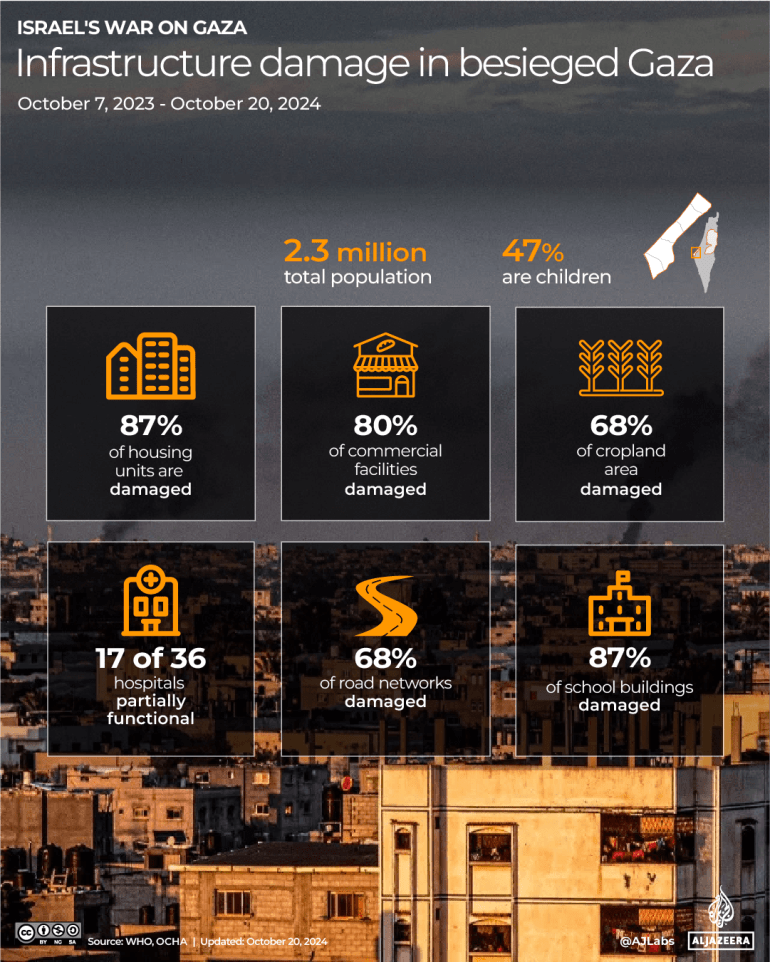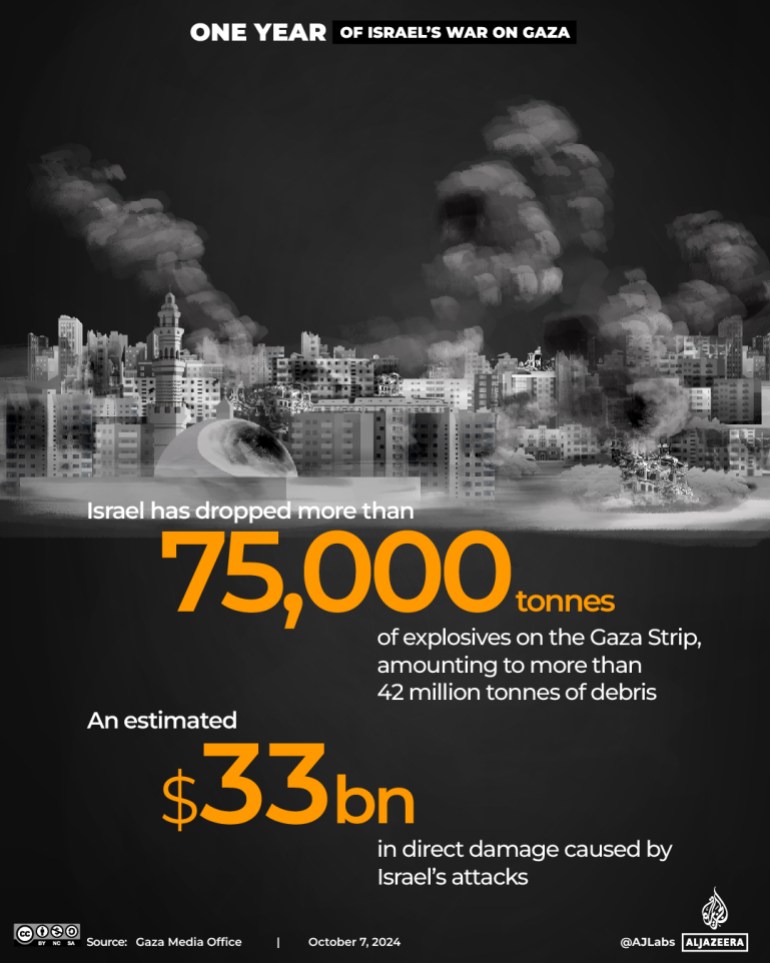UNDP assessment says poverty will cross 74 percent in 2024, affecting 4.1 million people, in the Palestinian territory.
Israel’s war on Gaza has set back development indicators such as health and education by nearly 70 years, a new United Nations report has found, with millions more Palestinians falling below the poverty line.
In a report published on Tuesday, the UN Development Programme (UNDP) said the overall Palestinian economy is now 35 percent smaller compared with a year ago at the start of Israel’s offensive in Gaza, with unemployment “potentially rising” to an estimated 49.9 percent.
The UNDP research showed the Human Development Index (HDI) for Gaza, a measure of “average achievement in key dimensions of human development”, is projected to drop to a level estimated for 1955, “erasing over 69 years of progress”.
In the occupied West Bank, the HDI was expected to drop to a level “reflecting a loss of 16 years”, the report said, warning it was “likely to further worsen” if Israeli military assaults expand.
The poverty rate across the enclave will almost double this year to 74.3 percent, it said. In all, 4.1 million people are now considered impoverished across the Palestinian territory, including the Gaza Strip and the occupied West Bank, with 2.61 million added in the last year alone, according to the report.
“The state of Palestine is experiencing unprecedented levels of setbacks,” said Chitose Noguchi, a UNDP representative, from Deir el-Balah in central Gaza.

UNDP head Achim Steiner told the AFP news agency that the immediate consequence of the war in terms of infrastructure destruction, as well as poverty and loss of livelihoods “is enormous”.
“It’s quite clear from this socioeconomic assessment, that the level of destruction has set back the state of Palestine by years, if not decades, in terms of its development pathway,” Steiner added.
Steiner said even if humanitarian aid is delivered each year after the war ends, the Palestinian economy will not return to its pre-crisis levels for at least a decade.
The study also said Israel’s bombing campaign created 42 million tonnes of rubble in Gaza, posing serious health risks.
The destruction of solar panels is particularly dangerous given the lead and other heavy metals they release, the report said.

On Tuesday, the UN agency for Palestinian refugees (UNRWA) made an urgent plea for a pause in the fighting in northern Gaza to allow humanitarian aid to reach trapped civilians there.
In a post on X, UNRWA chief Philippe Lazzarini said the agency’s staff reported being unable to find food, water or medicine in the war-battered region.
“The smell of death is everywhere as bodies are left lying on the roads or under the rubble. Missions to clear the bodies or provide humanitarian assistance are denied,” he said.
Gaza’s Government Media Office said since the beginning of Israel’s war on Gaza, Israeli forces have prevented the entry of “more than a quarter of a million trucks of aid and goods”, leaving 96 percent of its people facing high levels of food shortage.
At least 42,718 people have been killed and 100,282 wounded in Israeli attacks since October 7, 2023, according to Gaza’s Ministry of Health.